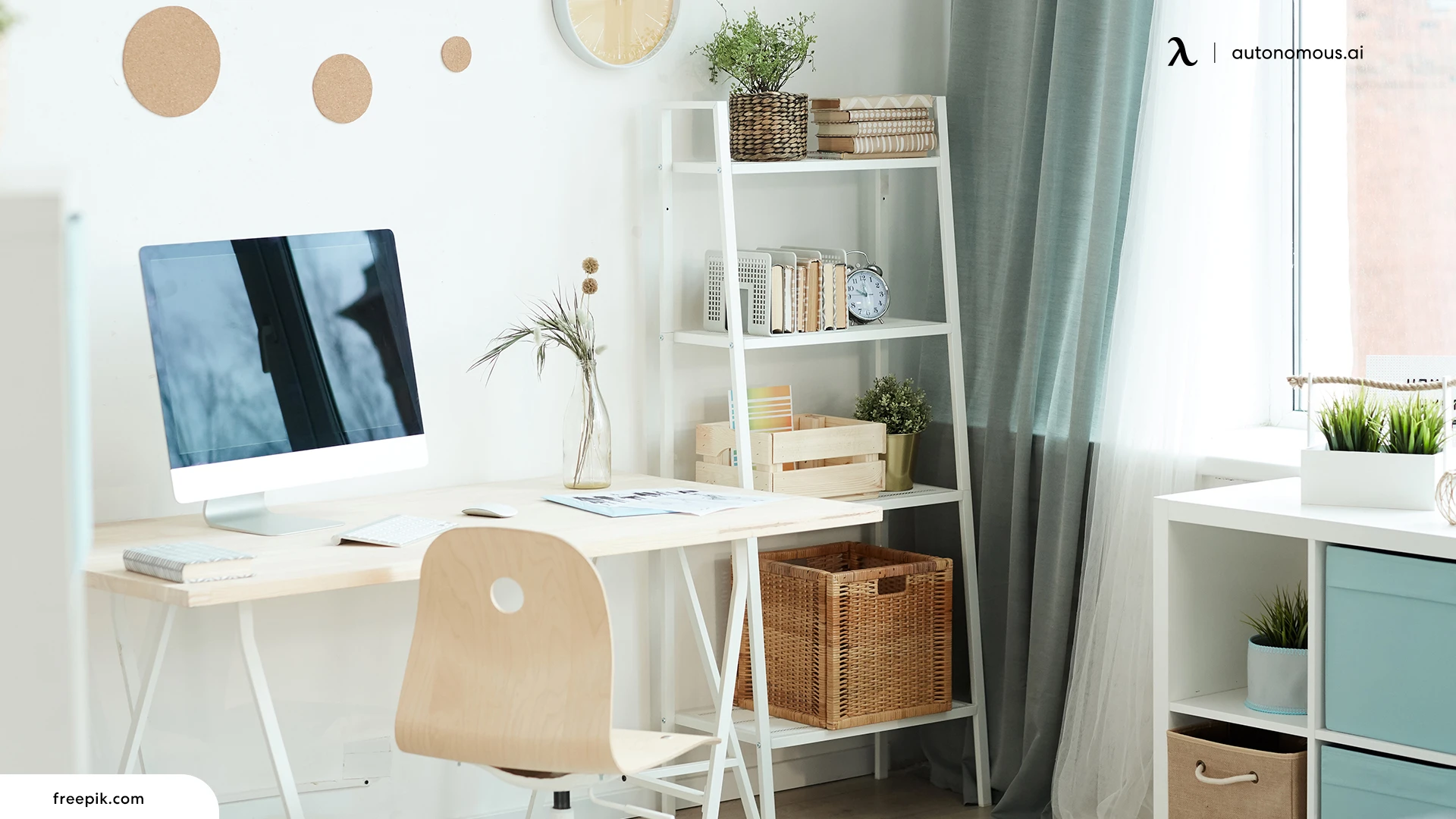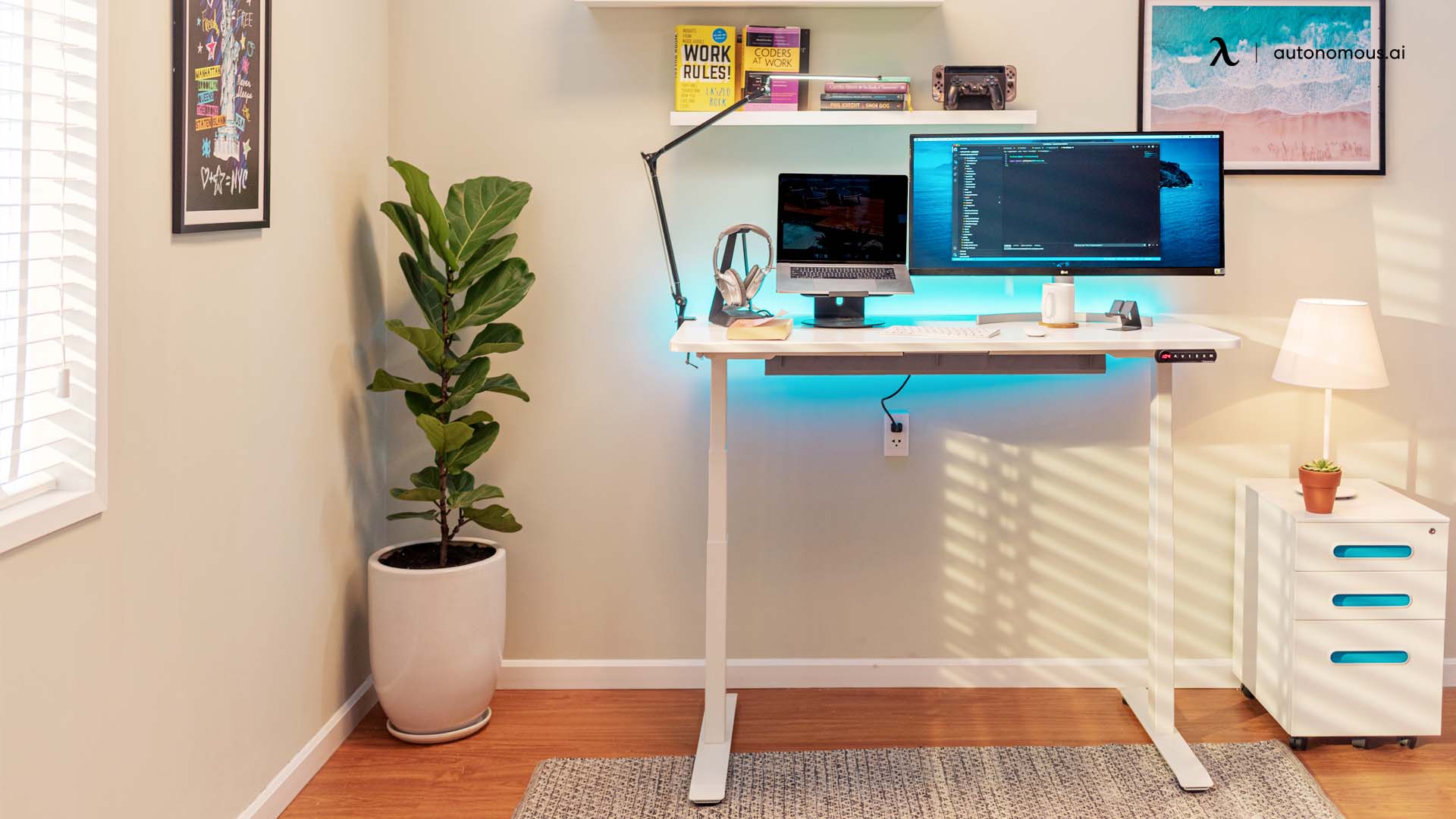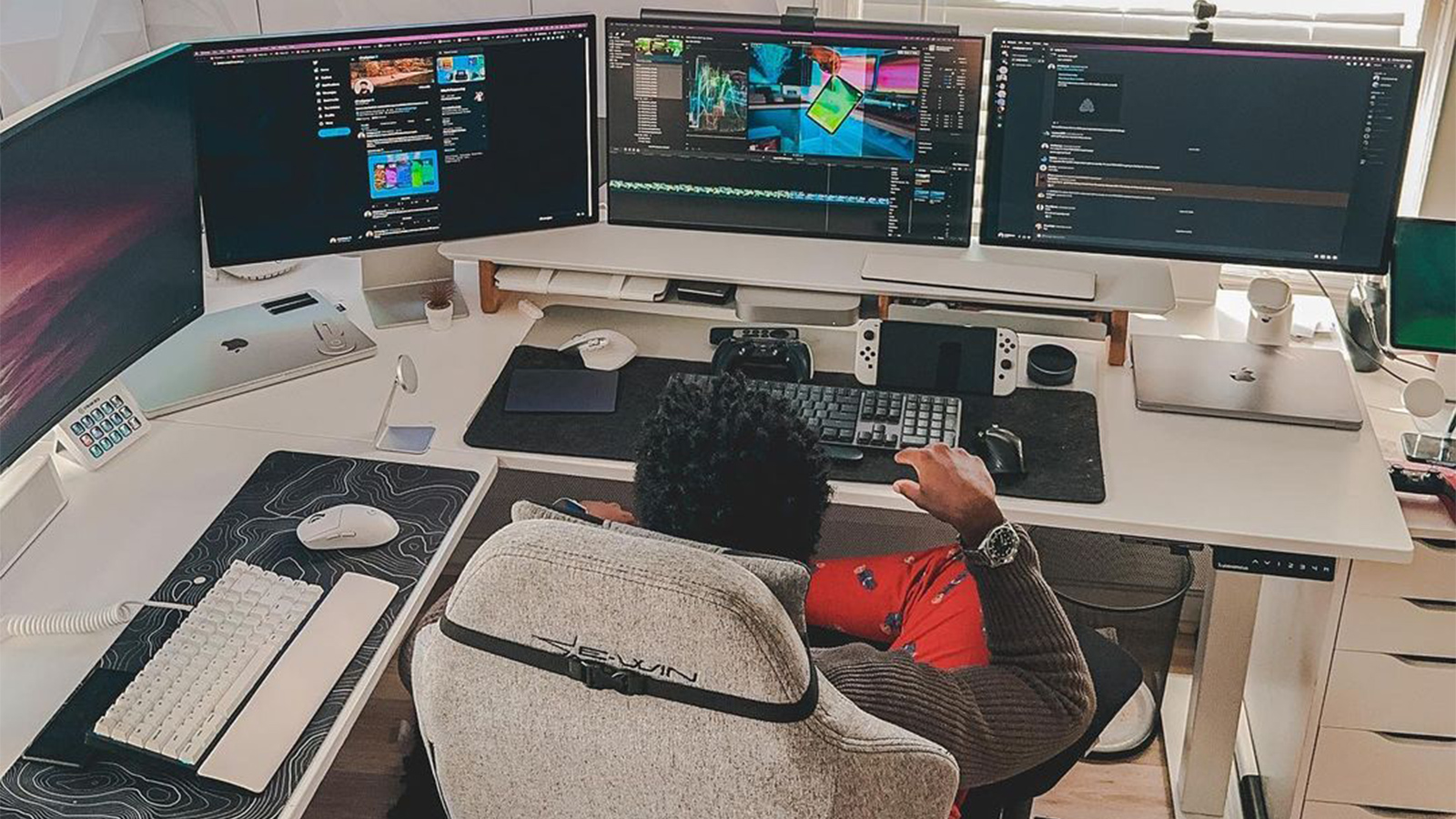
Feng Shui for Study Room: Layout, Colors & Desk Tips
Table of Contents
Whether you’re a student gearing up for exams or a professional pursuing lifelong learning, your study space plays a huge role in how well you focus and retain information. That’s where Feng Shui comes in.
Feng Shui, the ancient Chinese practice of arranging your environment for optimal energy flow, can make a big difference in how your study room supports your goals. The concept goes beyond aesthetics—it’s about creating harmony between you and your surroundings to boost concentration, reduce distractions, and promote personal growth.
In this guide, we’ll explore how to apply Feng Shui principles to your study space, whether you're setting up a dedicated study room, carving out a corner in your bedroom, or optimizing a college dorm. From desk placement and room layout to ideal colors and plants, every detail counts when it comes to creating an environment that helps you stay focused and thrive academically.
Why Feng Shui Matters for Studying
Feng Shui isn’t just about creating a peaceful environment—it’s about setting up your space to work for you, energetically and psychologically. In a study room, that means arranging things in a way that boosts mental clarity, supports long hours of focus, and helps you feel motivated.
At its core, Feng Shui is based on the idea that everything around you affects your energy, or Chi. If your study space feels chaotic or blocked, your ability to concentrate and absorb information can suffer. But if the energy flows smoothly—free of clutter and filled with supportive elements—you’ll likely feel more at ease and more productive.
Here’s how Feng Shui principles directly support your academic or learning goals:
- Improved concentration: Strategic layout reduces distractions and promotes a calm, centered mindset.
- Better energy flow: A clutter-free, balanced space helps prevent mental fatigue and frustration.
- Emotional support: Certain colors and natural elements can promote confidence, calm, or alertness depending on what you need.
- Goal reinforcement: Your environment reflects your intentions—organizing it with purpose helps keep you focused on success.

Feng Shui Study Room Layout Basics
Getting the layout right is step one in creating a study space that supports your success. Whether you’re working with a dedicated study room, a corner of your bedroom, or even a dorm, these Feng Shui guidelines can help you create a balanced, focus-friendly environment. If you’re using an L-shaped desk, make sure to consider how it flows with your space—this guide to the Feng Shui office layout for L-shaped desks offers smart tips to keep energy moving smoothly.
1. Position the Desk Properly (Command Position)
The most important rule: never have your back to the door. In Feng Shui, sitting with your back to the entrance puts you in a vulnerable position. Instead, place your desk where you can see the door, ideally diagonally across from it. This is called the command position, and it helps you feel in control, alert, and grounded.
2. Avoid Facing a Wall
Facing a blank wall can block creativity and motivation. If you must place your desk against a wall (especially in small dorm rooms), add a vision board, motivational art, or a mirror to symbolically ‘open up’ the space. This approach supports feng shui study desk facing wall situations without compromising energy flow.
3. Keep the Desk Away from the Bed
If your study desk is in your bedroom, avoid placing it directly next to or facing your bed. Mixing sleep and study zones can confuse your brain and disrupt both rest and focus. If there’s no other option, separate them with a curtain, bookshelf, or even a rug to define the space. For more practical ideas, especially if you're working with limited space, this guide to Feng Shui in small bedrooms with desks can help you create harmony without compromising function.
4. Ensure a Solid Wall Behind You
Sitting with a solid wall behind you creates a feeling of support—literally and energetically. If that’s not possible, use a high-backed chair for symbolic stability.
5. Leave Space for Chi to Flow
Clutter is the enemy of good Chi. Make sure there’s open space around your desk and that your pathways are clear. A cramped setup can lead to blocked energy, which often shows up as mental fog or stress.
4. Feng Shui Colors for Study Room
Colors carry energy, and in Feng Shui, that energy can influence your ability to focus and feel grounded while studying. For example, earthy tones like beige or soft green can promote calm and stability, while light blues and gentle yellows may boost clarity and optimism. When choosing your study palette, think about how each color makes you feel—and how it aligns with the purpose of the space. If you're considering a full refresh, explore how color psychology plays out in Feng Shui design by checking out how professionals apply Feng Shui office color principles to workspaces.
- Blue: This is the go-to Feng Shui color for calm and concentration. Soft blues help reduce anxiety and clear mental clutter, making it easier to study for long periods.
- Green: Tied to growth and renewal, green promotes balance and well-being. It’s an ideal color for students who want a fresh, grounded energy in their space.
- White and Cream: Clean and minimal, these neutral tones help keep distractions at bay. They also enhance mental clarity—especially useful during test prep or research-heavy tasks.
- Earth Tones (like beige, tan, and light brown): These grounding colors can help students stay steady and organized. They’re especially great for those who tend to feel scattered or anxious.
Colors to Use Sparingly:
- Red: While it’s a color of passion and energy, too much red can create restlessness or tension—not ideal for focus.
- Black: In large doses, black can feel heavy or overly serious. Use it as an accent if needed, but balance it with lighter tones.
- Bright Yellow or Neon Colors: These can be too stimulating and may lead to distractions. Softer yellows are better suited for study rooms.
Tip: If repainting the room isn’t an option—like in a dorm—incorporate color through desk accessories, curtains, posters, or even a chair cushion.
Best Desk Placement for Feng Shui Success
In Feng Shui, the desk is one of the most important elements of a study room. It represents your career, academics, and personal growth. The way you position it can either help you stay focused and confident—or block your energy flow.
- Command Position (Facing the Door, Not in Line With It):
Place your desk so that you can see the door while working, without being directly in line with it. This setup is called the "command position," and it symbolizes being in control of your space and future. If your back is to the door, it may create subconscious stress or anxiety.
- Avoid Facing a Wall (If Possible):
When your desk faces a wall, it can feel limiting—like your ideas have nowhere to go. In Feng Shui, this setup is believed to block energy flow and new opportunities. But in compact spaces like dorms or small bedrooms, you may not have much choice. If that’s the case, try adding a mirror or artwork to expand your visual field and lift the energy around your desk. For more tips on how to improve this setup, see our guide on feng shui desk against wall.
- Don’t Sit with Your Back to a Window:
In Feng Shui, the feng shui office layout with window highlights how having a window directly behind your desk can create feelings of instability or lack of support. To counter this, add a high-backed chair, curtains, or a solid piece of furniture to symbolically “support” your energy and help you stay grounded while studying.
- Keep the Desk Clear:
A cluttered desk invites scattered energy. Leave only the essentials—your laptop, a lamp, and perhaps one or two meaningful items (like a lucky charm or motivational quote).
- Stay Away from Sharp Angles:
Avoid placing your desk so that sharp corners from furniture or walls point directly at you. In Feng Shui, these are called "poison arrows" and are believed to drain your energy.
Feng Shui Tips for Dorm Room Study Spaces
Dorm rooms can be tricky when it comes to Feng Shui. They’re small, shared, and often don’t give you much control over layout or furniture. But with a few clever adjustments, you can still create a harmonious space that supports focus and academic success.
Divide Study and Sleep Areas
In Feng Shui, blending work and rest in the same zone can confuse your energy and impact productivity. Even in a small space, try to define separate areas for sleeping and studying. A bookshelf, curtain, or small rug can help visually separate zones. You can also explore dorm desk setup ideas that help make the most of compact layouts.
Keep the Bed Away from the Desk
If possible, avoid placing your desk too close to or directly facing your bed. This creates energetic conflict between rest and focus. If rearranging isn’t an option, try using a tall plant or lightweight divider to separate the areas symbolically. Check out college desk setup strategies for more layout inspiration.
Personalize with Intention
In a shared space, it's easy to accumulate clutter. Stick to personal items—photos, art, or small mementos—that inspire you and support your academic goals. Keep surfaces clean and organized to allow chi to flow freely. For storage that supports both energy and function, consider these student desk organizer ideas.
Add Soft Lighting
Harsh fluorescent dorm lighting can feel draining. Use a soft desk lamp or string lights with warm tones to create a more soothing study environment. Light has a huge impact on energy flow and mental clarity.
Use Plants (If Allowed)
According to the feng shui office plants approach, adding greenery to your study area can invite positive chi and promote focus. Try low-maintenance options like lucky bamboo, peace lilies, or pothos—perfect for dorms and small rooms, as long as they’re allowed and roommate-approved.
While you're working within tight dorm limitations, small touches—like a calm color palette, good lighting, and a plant or two—can make a big difference. For more guidance on crafting an energetically supportive space, see our Feng Shui office guide, which includes universal layout tips that work in compact rooms too.

Should You Put a Mirror in Your Study Room?
Mirrors are powerful tools in Feng Shui—but they must be used wisely, especially in a study room.
When Mirrors Help
- Reflecting Natural Light: A mirror that bounces sunlight into the room can lift your mood and energize the space, especially if your study area lacks windows.
- Expanding Small Spaces: In cramped dorm rooms or compact apartments, mirrors can create the illusion of a larger, more open environment, which helps reduce mental pressure and stress.
When Mirrors Hurt Focus
- Facing the Desk: A mirror that reflects you while you’re working can be distracting and scatter your focus. It creates a sense of constantly being watched, which can increase anxiety during intense study sessions.
- Reflecting Clutter: Mirrors double what they reflect. If your mirror shows messy piles, an unmade bed, or a crowded shelf, it reinforces disorder and stress in your space.
Feng Shui Tips for Mirrors in Study Rooms
- Don’t place a mirror directly in front of or behind your desk.
- If you need one, position it to the side, where it can reflect natural light or a calming image.
- Avoid broken, cracked, or heavily framed mirrors, which can block positive energy or introduce visual clutter.
Used carefully, mirrors can elevate your study room. But if placed thoughtlessly, they may hinder more than help.
Feng Shui mirror placement emphasizes that mirrors should reflect positive energy—like natural light or open space—not clutter, beds, or doors.
FAQs
What is the best direction to face when studying according to Feng Shui?
Face one of your personal auspicious directions based on your Kua number. Generally, east or northeast is favorable for focus and learning.
Can I study in my bedroom, Feng Shui-wise?
Yes, but create separation between your sleep and study zones. Use a screen, a rug, or even visual cues to distinguish the space and prevent energy from clashing.
Should my study desk face a wall in Feng Shui?
Facing a wall can limit opportunities. Ideally, face a window or open space with your back against a solid wall for support. If you must face a wall, place motivational art or plants to lift the energy.
What are good Feng Shui colors for a study room?
Blues, greens, and soft neutrals like beige or pale yellow work well. They support calm, focus, and personal growth.
Where should I place plants in a study room?
Put them on your desk’s far-left corner (Wealth & Abundance area) or in the East for health and growth. Avoid thorny plants and overgrowth.
What’s the worst Feng Shui layout for a study room?
A cluttered room with the desk facing the wall or door, mirrors behind you, and poor lighting can create stagnant or chaotic energy—hindering focus and productivity.
Can I put a mirror in my study space?
Yes, but don’t let it reflect your desk directly. Use it to bring in natural light or visually expand the space without causing distraction.
What is the Feng Shui cure for low motivation while studying?
Add a bright task lamp, a motivational quote in the Fame area (back-center wall), and keep your desk clutter-free. Use live plants to activate yang energy.
How do I apply Feng Shui to a shared dorm room?
Start with your side of the room. Use rugs, furniture, or shelves to create subtle boundaries. Keep your area tidy and place your desk for optimal personal energy flow.
What is the most important Feng Shui tip for students’ success?
Keep your study space clean, organized, and filled with things that uplift you—then orient your desk in a way that supports your energy, not against it.
Conclusion
Your environment shapes your energy—and Feng Shui gives you the tools to design a space that nurtures focus, motivation, and mental clarity. Whether you're setting up in a dorm, a bedroom, or a dedicated home office, applying these Feng Shui principles helps create a calm, intentional study area that works with you—not against you.
Start small: clear the clutter, reposition your desk, bring in a plant, and be mindful of what you surround yourself with. Soon, you’ll feel the shift—not just in your space, but in your ability to concentrate, absorb, and succeed.
Your study room isn’t just a place. With good Feng Shui, it becomes a quiet partner in your journey to academic achievement.
Spread the word
.svg)

.jpg)

.jpg)
.webp)







